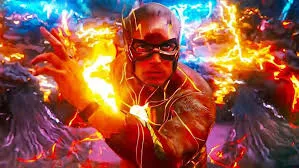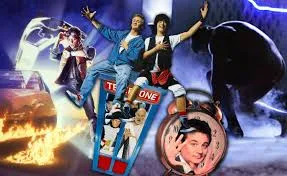
Exploring the Paradoxes of Time Travel in Film
Time travel is a concept that has captivated the imaginations of filmmakers and viewers alike, prompting them to explore the possibilities of travelling through time and space. A popular topic in science fiction, time travel films often present viewers with intriguing paradoxes that challenge our understanding of the universe and our place in it.
Time travel paradoxes are created when a time traveler goes back in time and changes the past, resulting in a completely different present. This kind of temporal paradox can be seen in films such as The Terminator, where Kyle Reese travels back in time to protect Sarah Connor from the time-travelling terminator, and Back to the Future, where Marty McFly must ensure his parents fall in love in order to ensure his own existence. In both of these films, the time traveler’s actions have a direct effect on the future, creating a new timeline in which the present is very different from the one they left.
Another type of time travel paradox occurs when a time traveller goes back in time and meets their own past self. This kind of paradox can be seen in films like Star Trek IV: The Voyage Home, where the crew of the Enterprise travels back in time to the 20th Century in order to save the future. In this film, the time-travelling crew members meet their own younger selves, creating an intriguing paradox in which the crew members exist in two points in time simultaneously.
Finally, a third type of time travel paradox occurs when a time traveller attempts to change a past event, only to find that they are unable to do so. This kind of paradox can be seen in the film Looper, where Joe must attempt to prevent his future self from being assassinated. Despite all of his efforts, Joe is unable to prevent the assassination, as he is, in effect, attempting to prevent himself from carrying out the act.

Time travel paradoxes can be perplexing and thought-provoking, prompting viewers to consider the implications of travelling through time and space. As these paradoxes often challenge our understanding of the universe, they can be an interesting and entertaining addition to any film.
Examining Themes of Fate and Destiny in Time Travel Movies
Time travel movies have long been a popular choice for movie-goers, offering a glimpse into alternate time periods and intriguing possibilities. One of the recurring themes of these films is fate and destiny, with characters often struggling to change their fate or discover their destiny. By examining some of the most popular time travel movies, we can gain insight into the ways these themes are presented and how they are interpreted.
The classic time travel movie Back to the Future (1985) focuses on the idea of fate and destiny. The protagonist, Marty McFly, must face the consequences of altering his own timeline by inadvertently creating an alternate future. He ultimately discovers he must make a choice between his own fate and the fate of others. This theme of destiny is further explored in the sequels as Marty McFly learns that his time-traveling adventures have shaped his destiny.
The 1993 movie Groundhog Day is another example of a movie exploring the theme of fate and destiny. The protagonist, Phil Connors, is forced to relive the same day over and over until he finally learns to accept his fate and make the right choices. In the end, Phil discovers he must take responsibility for his own destiny. This theme of accepting one’s fate is echoed in the 2019 movie Avengers: Endgame, in which the Avengers are forced to confront the consequences of their actions and ultimately accept their fate.
The 2009 movie The Time Traveler’s Wife also touches on the themes of fate and destiny. The protagonist, Henry, is a time traveler who has no control over when or where he travels. He is constantly confronted with the knowledge that he cannot change his fate. The movie ultimately suggests that fate and destiny are intertwined and that the choices we make can shape our own destinies.
Time travel movies often explore themes of fate and destiny. In Back to the Future, Groundhog Day, and The Time Traveler’s Wife, the protagonists are forced to confront their own destinies and make difficult choices that will shape their futures. These films offer an interesting insight into the ways in which fate and destiny can be interpreted and suggest that, ultimately, our choices determine our destinies.
How Time Travel Movies Changed the Genre
Time travel movies have been some of the most popular films for many decades, and for good reason. They are imaginative, sci-fi thrillers that capture the hearts of audiences everywhere. But time travel films have also gone through a major revolution in recent years, changing the way the genre is seen and understood.
Before, time travel movies typically focused on the concept of visiting the past or the future. These films often had a moral message, either warning us of the consequences of meddling with time or providing hope that our actions can change the future. Movies like Back to the Future (1985) and The Time Machine (1960) are classic examples of this.
However, more recent films have challenged the conventions of time travel narratives. Movies like Primer (2004) and Looper (2012) have used complex timelines and paradoxes to explore the relationships between cause and effect. Looper, for instance, uses a time loop to illustrate how our actions in the past can have unforeseen consequences in the future.
Time travel films have also become increasingly popular in the action genre. Films like The Terminator (1984) and X-Men: Days of Future Past (2014) have used time travel as a way to set up dramatic stakes and high-stakes conflict. By sending characters back in time to prevent a cataclysmic event, these films have provided us with thrilling stories of survival and heroism.
Overall, time travel movies have become much more sophisticated over the past few decades. They have gone beyond the traditional morality tales of the past and have instead used complex storylines to explore the possibilities of time travel. With each new movie, the genre continues to evolve and excite us with its imaginative possibilities.

The Best Movie Time Machines of All Time
Time travel has been a popular cinematic trope since the early days of film, and time machines have been featured in some of the most iconic movies of all time. From DeLoreans to phone booths, here is a look at the best time machines that have graced the silver screen.
- DeLorean from the Back to the Future Trilogy: The DeLorean DMC-12 is an iconic vehicle that has become synonymous with time travel. The car, powered by a flux capacitor, was first introduced in the 1985 classic Back to the Future and was used by Marty McFly (Michael J. Fox) and Doc Brown (Christopher Lloyd) to travel to the past and future.
- TARDIS from Doctor Who: The TARDIS, short for Time and Relative Dimension in Space, is a powerful time machine that has been featured in the Doctor Who television series since the 1960s. The TARDIS is a sentient spacecraft that has the ability to travel through all of time and space.
- Hot Tub Time Machine: The 2010 comedy Hot Tub Time Machine follows a group of friends who travel back to the 1980s after using a time-traveling hot tub. The film is a hilarious take on time travel and features a unique time-traveling device.
- Big Ben from Time Bandits: The 1981 fantasy adventure film Time Bandits follows a group of dwarves as they travel through time in a stolen time machine housed inside the famous clock tower in London. The time machine is powered by a dwarf named Fidgit, who is able to control the clock’s gears and dials.
- Phone Booth from The Time Machine: The 1960 science fiction classic The Time Machine follows a scientist (Rod Taylor) who invents a time machine in the form of a phone booth. The time machine is used to travel through time and explore the future.These are just a few of the most iconic time machines that have graced the silver screen. Whether they’re used for comedy or drama, time machines always make for an entertaining and imaginative cinematic experience.
Time Travel Movies: A Guide to the Best and Worst
Time travel movies have been a staple of the cinematic world for decades, capturing the imaginations of audiences around the world. The concept of traveling through time can be a thrilling one, but it can also be confusing and difficult to understand. To help you make sense of the genre, here is a guide to the best and worst time travel movies of all time.

- Back to the Future (1985) – This classic adventure comedy follows the story of Marty McFly (Michael J. Fox) as he travels back in time using a time-traveling DeLorean built by eccentric scientist Doc Brown (Christopher Lloyd). With a clever script, great special effects, and a timeless storyline, this movie is a must-see for all sci-fi fans.
- Primer (2004) – This low-budget indie film follows the story of two engineers who accidentally invent a time machine. Primer is an ambitious and mind-bending movie that tackles the complexities of time travel with intelligence and wit.
- Groundhog Day (1993) – This comedy starring Bill Murray follows the story of a weatherman who finds himself stuck in a time loop, reliving the same day over and over again. Groundhog Day is an entertaining and surprisingly thoughtful movie that offers a unique take on the time travel genre.The Worst
- Timeline (2003) – This adaptation of Michael Crichton’s novel follows a group of archeologists who travel back in time to save one of their friends. Despite its star-studded cast, Timeline is plagued by a clumsy script and mediocre special effects.
- The Final Countdown (1980) – This sci-fi action movie follows the crew of a modern-day aircraft carrier that is suddenly transported back in time to the days before the attack on Pearl Harbor. The Final Countdown is a cheesy and over-the-top movie that fails to make the most of its intriguing premise.
- The Time Machine (2002) – This remake of the classic 1960 movie follows the story of a scientist who builds a time machine to travel back in time and save the woman he loves. Despite its talented cast, The Time Machine is a dull and forgettable movie that fails to capture the spirit of the original.






Leave a Reply